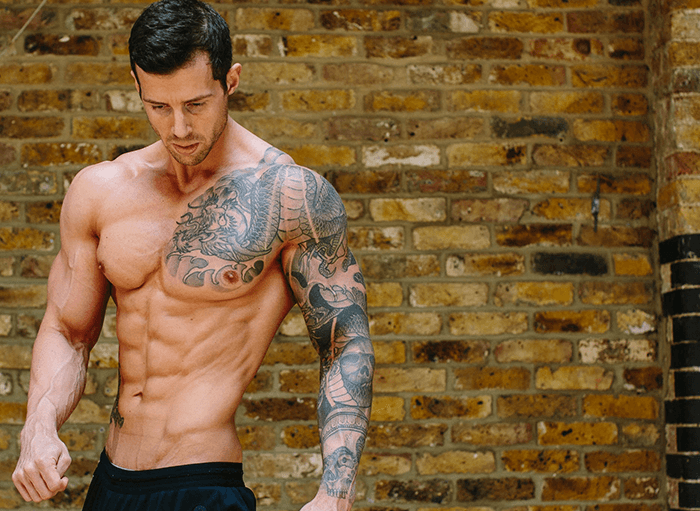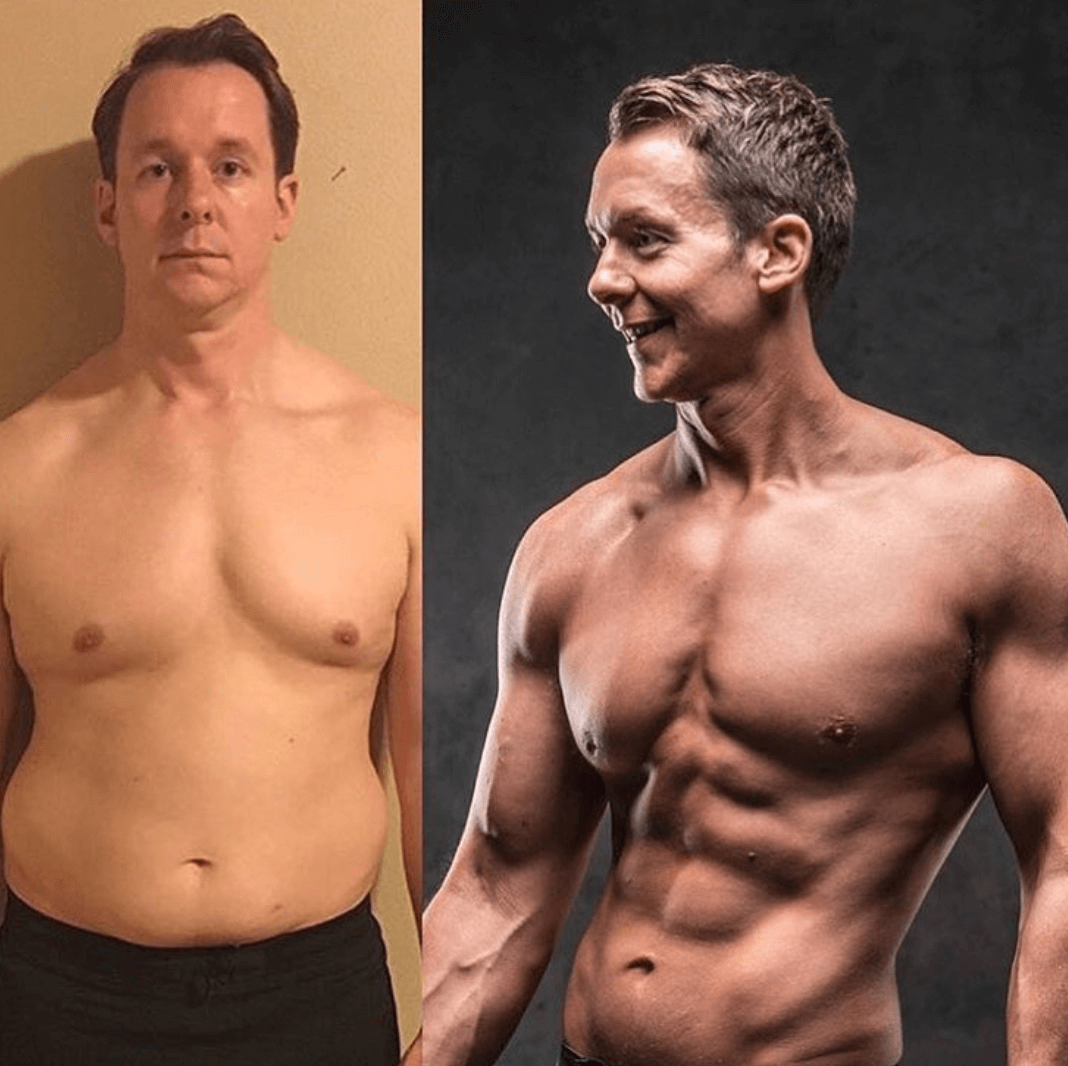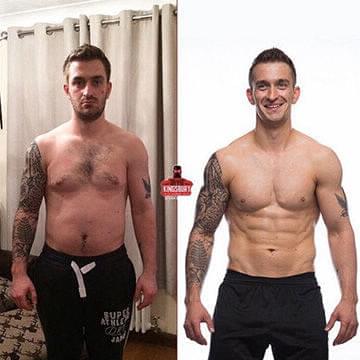We live in an intense world.
Can you believe we are exposed to around 5000 ads per day?
If you are into health and fitness and have been for a while, you will know how fitness has gone intensely mainstream.
The number of new products hitting the market is pretty scary.
-
Healthy eating
-
Fitness products
-
Recipe books
-
Superfood programs
This shiz is getting out of hand.
Whilst the systems required to achieve your goals are not simple and need explaining.
The majority of information is focussed on all the wrong elements.
The truth and what you actually need to focus on has been lost in the deliberate marketing machine used to sell you new stuff. But is this stuff needed? Will it help you achieve your goals?
Let’s take a look.

What matters No1.
Your goals.
“Achieve your goals in 8 weeks” follow this and “reach your goals”
Do you know what your goals are? Do you want to gain weight? Lose weight? Add muscle? Drop fat? Get fitter?
This is a fundamental problem. We don’t all have the same goals. Therefor we need different routes to achieving them.
Before you read on you need to establish what you want to achieve. Not what you may have been influenced to want. But what you truly want for yourself.
So quickly answer this. What are your goals? Why do you want to achieve them?
All done? Good, let’s move on.
Number2
Your body, your activity, your goals = your calories
Yes, calories do matter. If anyone has told you differently then I’m sorry for the time they have wasted.
Energy balance determines how your body changes.
We all have different energy needs.
Clean eating, healthy recipes and diets that don’t look at your needs are nothing more than nice look recipes.
Will they work?
Maybe, maybe not.
Are they optimum to you and your needs, your goals?
Absolutely not!
Before moving on answer me this – do you know whether you need a calorie deficit, do you need a calorie surplus, do you need to hit equilibrium?
Deficit = weight loss
Surplus = weight gain
Equilibrium = maintained weight
Drop the generic recipe cook book and get clued up. This stuff matters. So, take your time before moving on.
Why can’t we all just eat the same food?
You will have seen the classic 1200 calorie a day diets that are promoted to the masses.
Unsurprisingly 1200 isn’t a magic number that works for all human beings.
Give me 1200 calories a day and I will eat my own arm. Or your arm. So, basically don’t give me 1200 cals.
If your goal is fat loss then don’t go too low into a deficit
Why?
Too low and it isn’t sustainable. Healthy eating should never be a punishment, so don’t make it torturous.
If your calories are too low your energy will be too low to exercise, it will have a negative impact on your metabolism and you will not stick to it.
Ever been really good all day then it comes to 8/9pm and you binge out on all the food you own? Yep, me too. That’s because your calories are too low, so you don’t stick to them.
The opposite end of the spectrum. Calories too high for fat loss.
If your calories are too high you will use the calories you consume for fuel. Not the calories stored as fat. Simple.
For muscle building your calories need to be higher than for fat loss. Usually in a calorie surplus.
Building muscle and maintaining it uses a lot of energy. So you need to fuel the process sufficiently.
So eat 5000 cals a day. Job done?
I wish. Trust me and my greedy alter ego, this likely won’t work for you either.
Again we all have different needs and demand for calories.
Too many and any excess will be stored as fat. ??
Do you know whether you need a surplus or deficit?
If you do then how many percent over or under maintenance should it be to sustain results.
This varies. A lot.
But give these a go for starters
Try 15-20% deficit for fat loss
15-20% surplus for muscle gain
See how it goes and adapt as needed.
Your Macros
Energy balance determines weight changes, but macros are important for your goals.
Macronutrients Sometimes referred to as “macros,” are carbohydrates, fat, and protein. The calorific combination of the macros is what provides the total energy of food.
Different macros provide different levels of energy per gram
Carbs = 4cals per gram
Protein = 4cals per gram
Fats = 9cals per gram
Alcohol = 7cals per gram
The majority of foods will contain a mix of these. The way you choose to distribute them will affect your results.
Protein
Important for muscle growth, muscle maintenance and satiety.
It has a high thermic effect meaning you burn a lot of calories during the digestion.
Fats
Valuable source of energy that has little impact insulin levels. High calorie per gram at 9. Diets that prioritise fat and protein for fuel are shown to be more effective for fat loss than equal calorie diets higher in carbs. Link
Carbs
Useful energy source. Helps athletic performance.
+ cake. I love cake.
How you share out your calories into the various macros isn’t a simple concept.
Find out why from my previous blog – {CCM:BASE_URL}/blog/whatshouldmycaloriesandmacrosbe/
If you don’t want professional advice. And I don’t mean Instagram fitness guru advice. I mean real advice.
Then before starting, ask yourself these questions about the way of eating you are looking at…..
Does it allow you to hit your calories consistently?
Do you enjoy the way of eating? Can you fit it in with your life? Is it sustainable?
Does it provide you the energy you need for the stuff that really matters?
Your balance is body type, preference and goal dependent.
Don’t trust one size fits all macros.
When you eat and how often you eat have little impact on your overall goals.
Focus on your calorie and macros first and foremost.
Your food choices.
Yes, food matters. Whilst you can lose weight eating anything as long as you hit your deficit this is far from ideal.
Why food matters…
Health- good quality, whole foods are better for you. They will provide your body with vitamins, minerals and nutrients for better energy, sleep, reduced risk of disease and a longer life. After all it’s not just about losing weight!
Healthy foods can also help contribute to the positive changes in body composition. Eating whole foods will increase satiety, have a higher thermic effect and provide less crap. Meaning you likely eat less, absorb less and get the stuff you need, not the stuff you don’t need.
Your training
The training you choose to partake in has a big impact on the way you look, function and your hormones.
I recommend weight training as the base of most of the training plans I write. Unless people have specific endurance goals. Even in these cases, resistance sessions do feature.
But for the goals I deal with most often what actually matters?
Fat loss
You don’t need to do hours of cardio to drop body fat. You don’t need to jog, run or do “savage AF intervals sessions”.
You need to balance your energy to create a deficit.
You need to lift weights to maintain muscle
You can do LISS to help burn extra calories
You can use intervals to help burn extra calories
Muscle gain
The more you train the more calories you need to eat. If you think training 7 days a week will yield more gains, this simply isn’t the case.
To build muscle
You need to recover from your training
You need to fuel muscle gain
You need to provide a progressive training stimulus with gradual overload
The essentials of fat loss and muscle gain training are pretty serious topics in their own rights, but if you aim to get the basics right you will start to see some results.
Your results
Your results also influence your results. What does that even mean?
As your exercise levels change your need for calories change.
As your bodyweight and body composition change your demand for calories also change.
What once worked, will not always work.
If your goals continue to progress then your food and training need to adapt.
Fun, consistency, lifestyle
To see long term results health and fitness needs to be part of your lifestyle, you should enjoy it and it should fit into your life. It shouldn’t be a yoyo battle between the healthy and unhealthy personalities you have in you. You need to keep both of these personalities happy for consistency and to keep you on track. The trick for this is to still eat foods you enjoy, don’t do extremes and maintain a sustainable level of exercise.
Oh, yea and
-
Try and get 8 hours of sleep
-
Drink water
-
Don’t get stressed
-
Post your workouts on social (if you don’t they didn’t happen)
-
Get advice if you need it
-
Take selfies (many)










